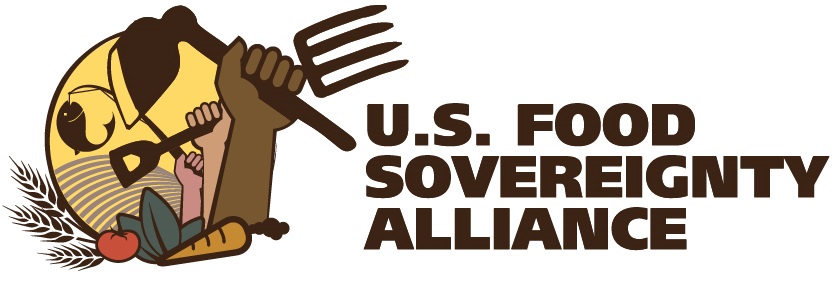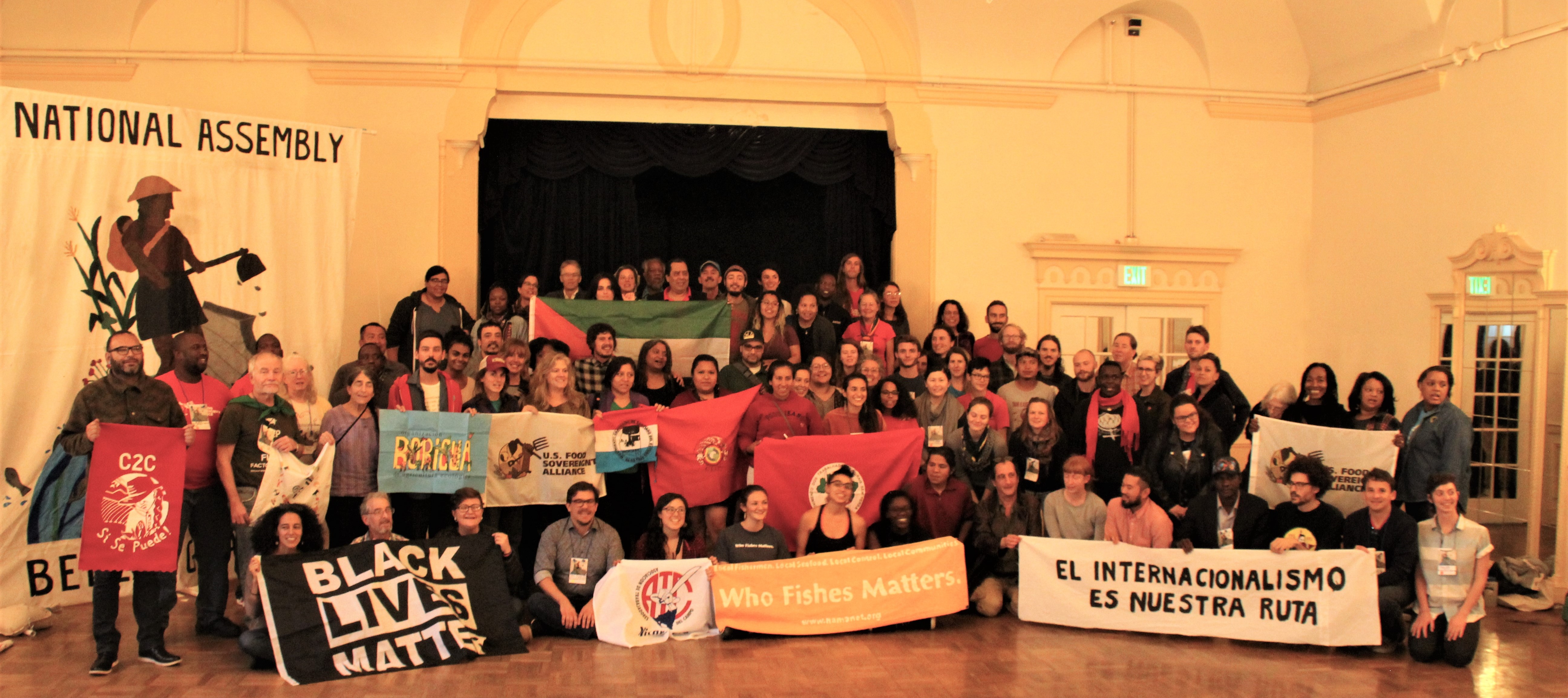For Doria Robinson, executive director of Urban Tilth, an urban agriculture organization in Contra Costa County in the San Francisco Bay Area, reconnecting people with the land is a chief focus of building food sovereignty in cities.
Part of that work includes challenging regimes of private property while also rethinking uses of public lands in service of a commons for all and reintroducing a “land culture” into urban living.
“Urban people are for the most part landless people. We don’t often own anything. And not only do we not own anything, but we’ve been disconnected from a land base,” Doria said during the US Food Sovereignty Alliance Assembly in Bellingham, Washington, in October 2018.
“So the work is to reconnect people with land,” she continued. “To get them back to a sense of belonging to a place, being accountable to a place.”
Urban Tilth educates local residents on urban agriculture, sustainability, and food justice, fostering “home grown experts” on food production, food justice, and the local environment. In addition to several school and community gardens, Urban Tilth also operates a three-acre farm in North Richmond on county land leased to the organization at a nominal fee.
“Public land should be used for the public good, and it shouldn’t be closed in such a way where people who are without land can’t access it,” Doria said. “To take public land and use that to actually reclaim sovereignty—even in a space where you don’t own anything—actually expands your notion of ownership.”
In that way, working toward food sovereignty for Urban Tilth inherently means questioning private property, as well as the meaning of public property and public domain. Initiatives that can arise from the kind of questioning, like the North Richmond farm, open the door for reclaiming public space—and reclaiming identity, culture, and community in the process.
“I think in a lot of ways the urban landscape and urban ag is like holding the line against the extractive economy in the heart of the beast and saying ‘no more,’” Doria concluded. “We are going to hold this land and push back from inside and creating space for the kind of regenerative culture we need.”
Food Sovereignty Stories is a video series exploring what food sovereignty can look like for diverse social movements across the United States. Share this video and follow USFSA for updates!




